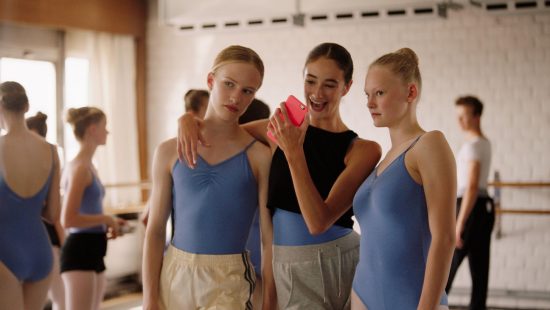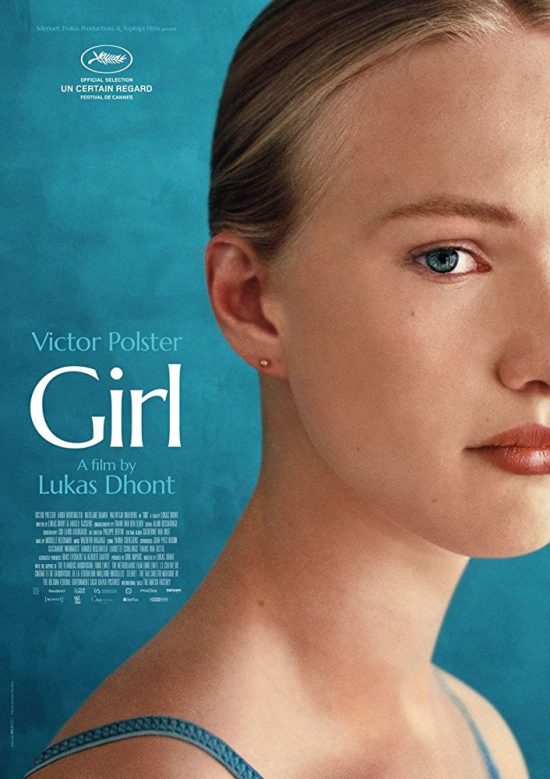BFI London Film Festival 2018 Review: Girl
Back in 2013 whilst reviewing the 10th volume of Boys on Films, Peccadillo Pictures’ illustrious anthology of queer shorts from across the world, one film had particularly stood out from the bunch, Lukas Dhont’s Headlong (Corps Perdu), starring breakthrough talent Jelle Florizoone of North Sea Texas fame. Hailing from Belgium, the filmmaker immediately struck me as a talent to watch because of his ability to effortlessly create mood through visuals and character moments.
Five years later, it’s no surprise how his feature debut has already earned a number of accolades upon its world premiere in Cannes back in May, including the Queer Palm and the Best Actor and Best Director prizes in the Un Certain Regard section. And we’re thrilled it just picked up the First Feature Competition trophy at the BFI London Film Festival, where we had the pleasure of seeing it and reviewing it. Girl is in fact a remarkable cinematic achievement that, despite a harrowing subject matter, manages to convey an empowering and uplifting message, and does it beautifully, with narrative grace and with a minimalistic yet effective style.
The film follows Lara (Victor Polster), a male-to-female trans teen, formerly known as Victor, who has started hormone therapy and the whole path towards transition but still has a long way to go before surgery. Having just moved to a new school, one of the country’s most competitive ballet academies, Lara is under pressure and is not coping too well with the long wait to claim her true self. Girl however isn’t a coming out story or a coming to terms with your own difference. It’s about coming to terms with the fact that what’s inside matters more than what is on the outside.
The conflict here is mostly internal, which makes for a compelling character study rather than your run-of-the-mill LGBTQI+ storyline with external antagonistic forces and Dhont makes all of that clear right from the start. The film’s opening image finds Lara in bed, playing around with her adorable little brother Milo who spells out her name, establishing how her true identity has been welcomed in the family. The two siblings live with their loving and caring single father (a powerfully understated Arieh Worthalter) and despite their mother’s absence remains unexplored, it doesn’t seem to have had a particularly destabilizing impact on their lives.
Lara’s first obstacle comes from the fact she hasn’t started practicing ballet early enough during childhood hence her feet and posture haven’t fully adjusted to the natural changes dictated by the discipline. Such a major setback combined with the added stress her body is going through to prep for the transition, means that she has to work three times harder in order to keep up to speed with her ballet piers.
Along with the daily group classes, she attends gruesome one-on-one sessions with a dedicated teacher that helps her work through the physical challenges caused by the lack of an early start. During all the ballet practice scenes the filmmaker mostly keeps the camera tight on Lara with close ups and medium close ups of either her face or feet which heighten the audience’s perception of the protagonist’s isolation within her physical and emotional pain.
There’s no doubt that pain is a central theme in the narrative and Lara’s pain is often self-inflicted. For instance, she insists on tucking in and taping down her male organ for each ballet practice, despite being advised against it by her doctor, because she just can’t cope with seeing it every time she looks at herself in the mirror. Even if her doctor, her therapist and even her father keep pointing out that she is already Lara inside and she must be patient for the rest to catch up, the emotional pain keeps growing to an unbearable state, especially when her new piers begin to question her and things get out of control in a rather unpleasant confrontation.
Despite some inevitable polemic discussion surrounding the film’s debut in Cannes in regards to the filmmakers’ choice of casting a non-trans actor in the leading role, it must be immediately pointed out that newcomer Victor Polster’s restrained performance is out of this world. Being a gay man, I can relate to issues of representation in the entertainment industry and I’m well aware that within the span of diversity, trans people are still those who suffer the most in terms of discrimination and overall acceptance. But in this case I’d rather focus on the huge fact that such a brilliant film about a transgender human being has actually been made and having an incredible young Belgian actor at his debut doing the role immense justice is the cherry on top.
Don’t get me wrong, Girl can be a tough watch as it progresses towards its heavily emotional climax, yet there’s an extreme need for these stories to be told because the world is way bigger and diverse than what society paints or what studio heads are willing to invest in. That’s why filmmaker Lukas Dhont deserves the warm welcome he’s receiving. On his first feature he has already displayed a rare artistic sensibility and maturity beyond his years. Let’s hope Girl paves the way for more films not just telling stories with trans characters front and center but compelling stories with trans characters that are so well rounded and developed like Lara.
Girl is set for release in UK cinemas on 15th March 2019.












